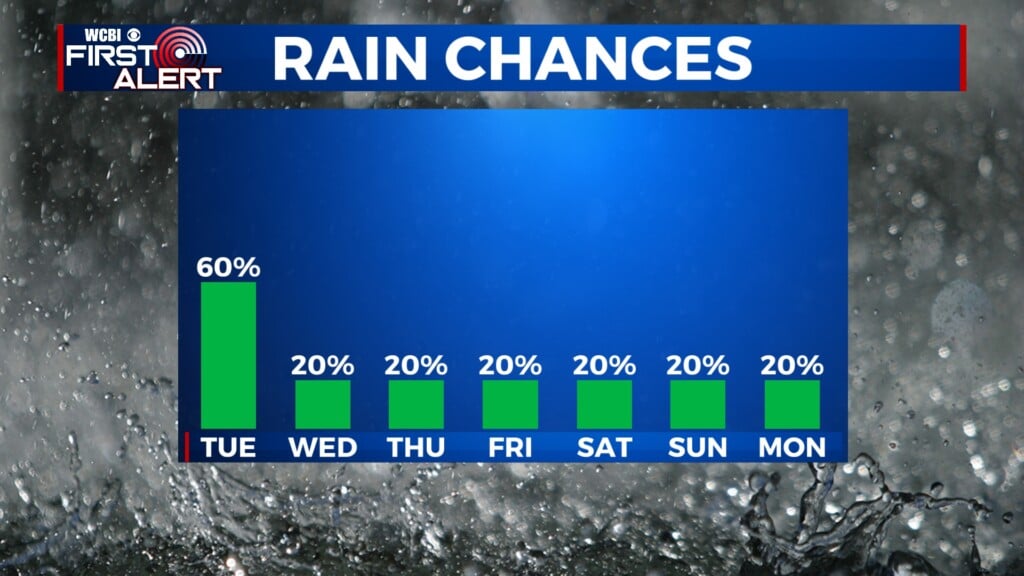Video: Farmers Say Record Rainfall Deluged Crops
[syndicaster id=’5855031′]
LEE CO. MISS. (WCBI) – Farmers throughout our area are assessing their crops in the wake of last week’s torrential rains. As WCBI’s Allie Martin reports, the wet weather can be especially bad for soybeans and there are more worries ahead.
Several days after record rainfall hit the area, local farmers were swapping stories, and advice, at the MSU Extension Center.
“When you get 5 and a half, six inches of rain in a couple of days, it’s always going to have an effect,” said Tommy Coggin, a Monroe County farmer.
Parts of Northeast Mississippi got a lot more than that Friday and Saturday. While that meant localized flooding in some cities and towns, it saturated row crops. Many farmers planted their crops late, because of an unusually soggy spring.
“Excessive water is not good on a root system , so you’re going to slow down growth too,” said Normie Buehring, of the MSU Extension Service in Verona.
Keith Wiseman farms about 300 acres of soybeans and says most of his crop is safe.
“Surprisingly, it looks better than I thought, I poured five inches out of the gague just a while ago and not a whole lot of mine were underwater, but I saw some near my house , some friends, completely underwater and now they’re covered with mud,” Wiseman said.
Another concern for farmers after heavy rains, standing water and warmer temperatures can play havoc with row crops.
“It does just what you think it does, 100 degrees that water gets hot, little plant suffer, actually boils, that water gets hot enough it can actually burn the leaves, affect the leaves, it’s just not good for them, it’s just depending how long that water stands on those crops, we need it gone now,” Coggin said.
So, both Coggin and Wiseman will watch weather forecasts and do what they’ve done for years.
“I’m a person of faith, and I trust the Lord, put your trust in Him, that’s all you can do, all you need to do,” Wiseman said.
Corn is harvested at the end of August, while soybeans are harvested in September throughout the fall.
Farmers are also fighting weeds. Wet spring weather delayed application of herbicide throughout the area.





Leave a Reply